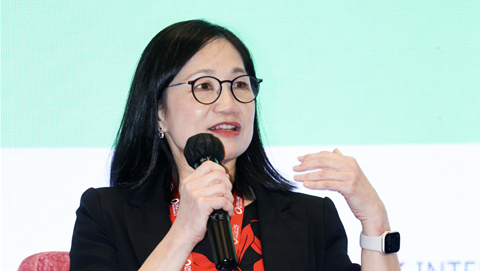The technology industry in Singapore welcomed several initiatives to boost tech innovation and spending, announced in the country’s budget which was presented in Parliament on Tuesday by Deputy Prime Minister and Minister of Finance, Lawrence Wong.
The government introduced a new Enterprise Innovation Scheme that will raise tax deductions to boost innovation.
Companies are currently allowed tax deductions of up to 250 percent of qualifying expenditures on some activities.
This will be raised to 400 percent of qualifying expenditure for five activities which are:
- Research and development conducted in Singapore.
- Registration of intellectual property (IP), including patents, trademarks and designs.
- Acquisition and licensing of IP rights.
- Innovation carried out with polytechnics and Institutes of Technical Education (ITEs).
- Training via courses approved by SkillsFuture Singapore and aligned to the Skills Framework.
The qualifying expenditure will be capped at S$400,000 for each activity, except for innovation carried out with polytechnics and ITEs – which will have a cap of S$50,000.
Wong said businesses that make full use of these schemes could “enjoy tax savings of nearly 70 percent of their investment”.
In his Budget announcements, the Minister also said that the National Productivity Fund (NPF) will be topped up with an additional S$4 billion and investment promotion would be included as a supportable activity.
Noting that NPF already supports a “wide range of measures” for productivity enhancement, Wong said the fund will be used to anchor more quality investments in Singapore.
These would include supporting businesses in building new capabilities, adding greater value to the domestic ecosystem and upskilling workers, Wong said.
Earlier in 2017, Singapore announced a S$1 billion injection to the NPF to support industry transformation.
Wong also announced that the Singapore Global Enterprises initiative, which helps promising companies with customised assistance in areas such as innovation, internationalisation and fostering of partnerships with other companies, will receive a S$1 billion grant.
An additional S$150 million will also be set aside for the SME (small and medium-sized enterprise) Co-Investment Fund.
SGTech welcomes measures
SGTech’s Chair, Wong Wai Meng, speaking about the initiatives, said: “This is a welcome boost to the tech industry, and SGTech welcomes this opportunity for the tech sector to contribute even more to Singapore’s economic growth.”
SGTech is Singapore’s leading tech association representing over 1,100 member organisations.
Saying that the S$4 billion top-up of the NPF was a welcome step, SGTech’s Wong said the fund had supported many national programmes, such as Productivity and Innovation Credit Scheme (PIC), Industry Transformation Maps and the Productivity Solutions Grant (PSG).
“We hope that the government will take a more nuanced approach to these investments to provide higher investments in newer areas of growth, such as cybersecurity and artificial intelligence (AI), and more broad-based support for mature areas, such as the adoption of customer relationship management (CRM) tools and enterprise resource planning (ERP) systems,” Wong said.
Cisco’s Singapore and Brunei MD, Andy Lee, said the NPF and the Enterprise Innovation Scheme will “enable businesses to progress in their innovative and digital capabilities to leverage emerging technologies such as artificial intelligence and machine learning”.
“This will open new channels of growth for Singapore and help it build resilience in the digital age, particularly as new cyber threats emerge, and the threat landscape evolves,” Lee said.
Commenting on the Enterprise Innovation Scheme, Veritas Technologies VP and MD for Asia South and Pacific, Andy Ng, said companies, by leveraging emerging technologies such as AI and machine learning (ML), would be able to “effectively manage and classify massive data volumes, reduce the time on performing manual tasks and instead, enable the employees to re-allocate more resources to focus on strategic activities, such as digital transformation and innovation”.









